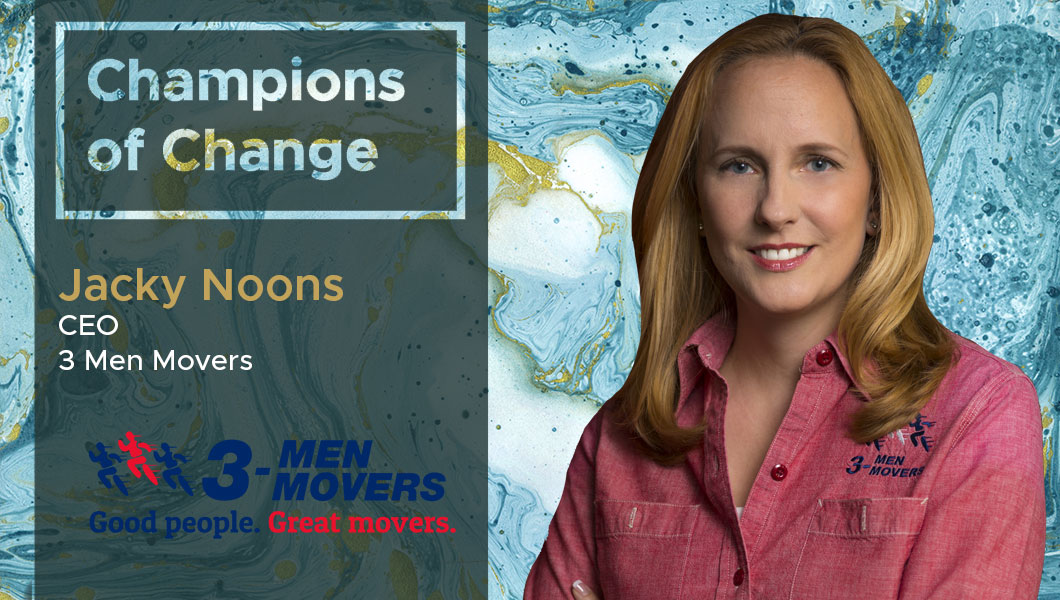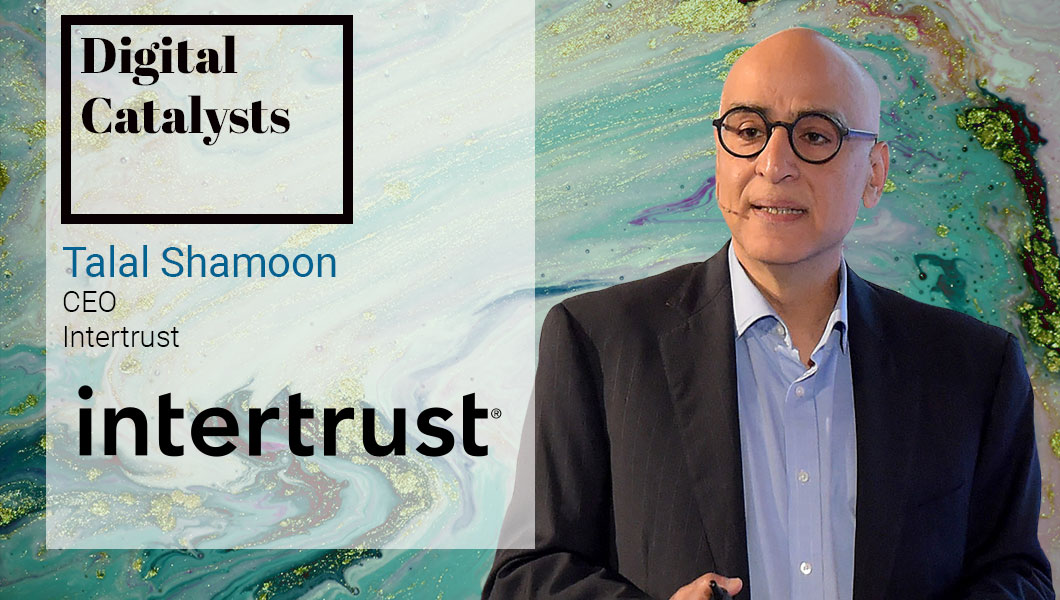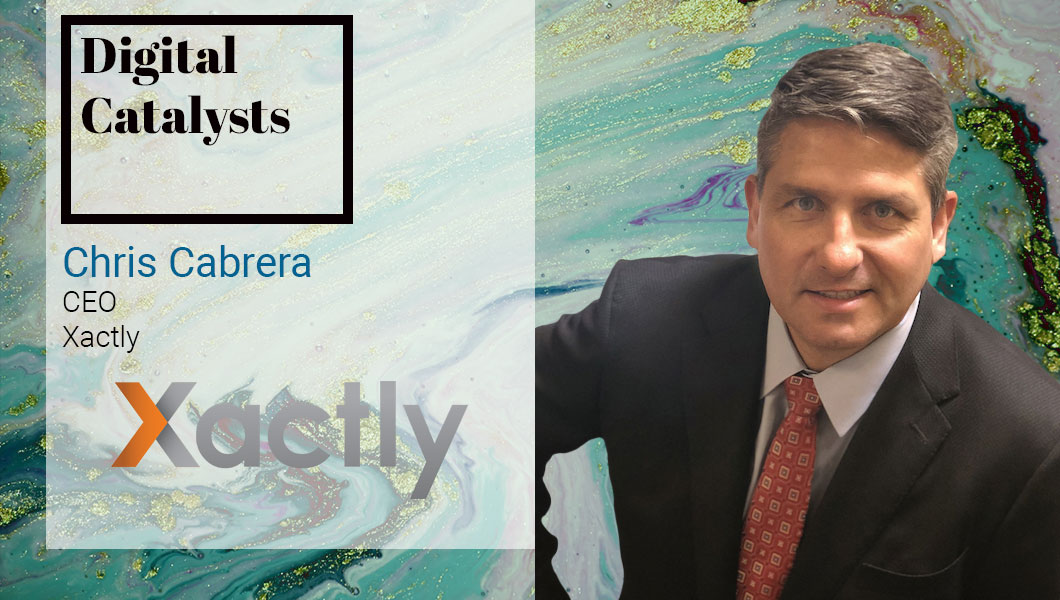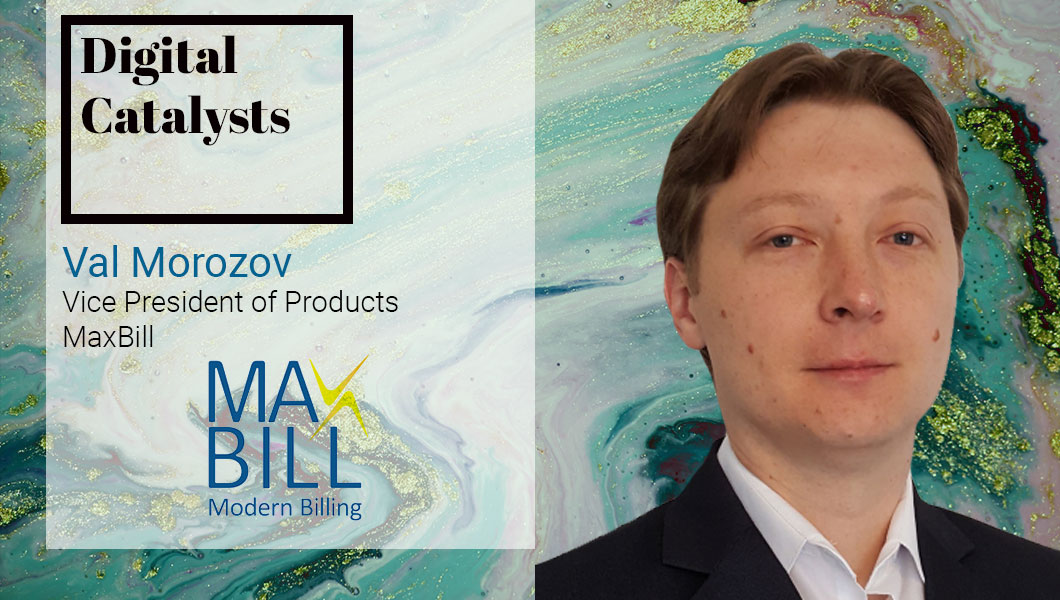Interview with Joseph J. Tinney, Jr, CEO at Advanced Pavement Group
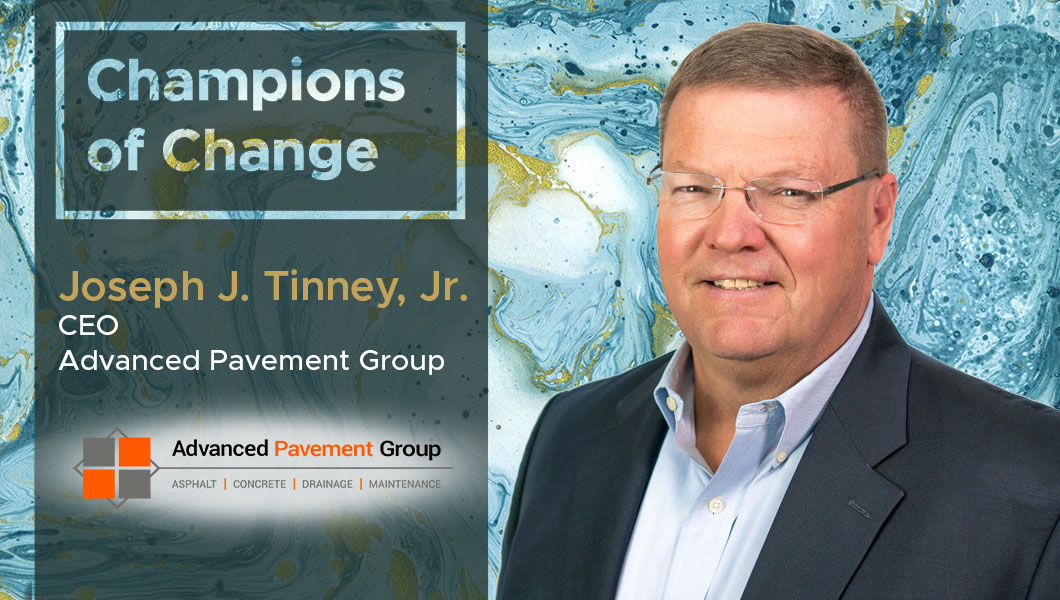
Joseph J Tinney, Jr has spent over 30 years providing Executive Leadership at top companies within the Facility Management and Service Industry. He has a successful track record of leading $600 mn+ international businesses by developing and implementing strategic plans as well as building high performing teams that delivered increased revenue, market share and profitability. Prior to joining Advanced Pavement Group as Chief Executive officer in 2017, Joe was the Chief Growth Officer and Divisional President of the $2B+ BrightView Landscape Services Company. Previously, Joe held several Executive positions at Aramark Corporation the last of which was Divisional President of the Business and Industry, Facility Services business. Joe received a B.S. degree from The College of New Jersey and has a variety of certifications from various industry organizations
TDE: Thank you so much for taking our questions! Tell us a little about your business and its history?
Joseph J. Tinney, Jr: Advanced Pavement Group is a premier provider of asphalt, concrete, drainage and maintenance services in the Northeast and the Mid-Atlantic U.S. The company was formed to provide property management firms and owners with commercial portfolios pavement management solutions that are driven by a strong customer focus and integration of technology. We have strategically established branch offices in New York, Central and South New Jersey, and Delaware; and we intend to be in some surrounding states as soon as this calendar year.
TDE: What are your thoughts on the current pace of digital transformation in your industry?
Joseph J. Tinney, Jr: We exist in a space that is typically slower paced in adopting new technologies. However, we have crossed over, and I don’t feel that any business that wants to remain competitive in the marketplace or is serious about growth believes that the adoption of technology is optional. We have entered an era where the question is not whether or not having a robust digital toolbox makes sense, but rather what tools are winners and which are losers. The new challenge is identifying the right technologies and their practical application.
We are inundated with options from CRM’s, fleet management and scheduling software, data funnels, estimating programs, applications for field assessments, social media, digital advertising, marketing automation, and we need it all to interact with each other. What to use and where is going to be the most significant challenge. Understanding that we must be a technology company first to be the best paving contractor is vital. I think that the pace to be digitally proficient is accelerating, and that is exciting for our industry and will add immense value for our customers.
TDE: What do you feel is the one technology trend within your industry that cannot be ignored?
Joseph J. Tinney, Jr: For myself, it is clear that how we manage our process from customer acquisition to project completion is reliant on the critical technological mechanisms we have in place and those we are adding in the future. These are essential and will consistently evolve. However, one key element that cannot be overlooked is how we communicate with our customers and potential customers. This means being progressive in our messaging and its delivery.
Traditional mediums aren’t going to cut it in the future that is right in front of us. Video content and social media is crucial to our growth as an organization. However, it is not only the use of these platforms that matters but rather the substance of the information being delivered. We cannot rely on narrowly focusing on what we do. Yes, it is important to show that we are highly skilled pavement installation and maintenance experts, but customers today want to know who you are and what you stand for. Capturing culture and identity in our content says more about what kind of service provider we are than anything else.
Advanced Pavement Group is an organization layered with talent and new ideas. Our digital presence is the perfect stage to showcase this. Not capitalizing on the opportunity to share with our communities is a mistake.
TDE: Have you used technology for managing a) field team operations, b) sales/channel management, c) shipment tracking, d) employee engagement, or e) customer retention? What has been your experience?
Joseph J. Tinney, Jr: We utilize technology for managing almost every aspect of our business and are continually exploring new avenues to do so more efficiently. Part of R&D in our business is driven by a desire to make much of our back-end support more efficient and more error proof. When operational advancements, equipment, and procedural improvements are available, we capitalize on those and pass that value on to our customers. But, the need to interface our teams with the latest technology is crucial to the totality of our business both functionally behind the scenes and customer facing.
Our experience with employing a quality CRM, operations management tools, and marketing automation in concert have made our business more fluid and adaptable. It is the reason why we are now able to begin the process of introducing applications with which our customers can interact. This makes their experience with us more fulfilling as information and communication is streamlined.
TDE: How integrated is your customer experience- from sales to operations to delivery tracking? Do your customers have access to a common portal?
Joseph J. Tinney, Jr: We are integrated across our entire workflow from customer acquisition to product delivery; the process is driven digitally. This provides many advantages to our customers, especially those that have properties we service across the region. Managing their portfolio is challenging, as many times they cannot be physically on site at every location. We fill that gap and can report data regularly to empower them to make decisions.
As I mentioned, we are in the process of introducing applications that will assist in making how they interact with us more streamlined. We hope to have fully rolled out an application that tracks the customer experience and feeds data to our customers in the next year. As we test, we are focused on pinpointing what is relevant and important to our customers, and we are making that the priority. Being the logical solution means offering the simplest experience and the highest quality product. This is part of our vision.
TDE: How paperless are your operations? Do you feel any part could be digitized and if yes, which?
Joseph J. Tinney, Jr: Our operation is paperless on many levels. There are still areas of our business where we have not completed transitioned, but a path to do so is clear, defined, and we have begun the process. Manly, because we are mobile in many of our functions, we have needed to employ the use of tablets and smartphones as part of how we operate in the field. This has been a surprisingly easy transition, and much of our workforce has adapted quite easily. I believe that because the technology we are utilizing is already integrated into our personal lives so heavily, the introduction of it in our professional lives is much more comfortable that it was 10 or 20 years ago.
The pace of change is great here, and much of the adjustment comes in retraining ourselves to allow the technology to its job. I think we will see ourselves entirely digitized in the very near future as we are applying more IT solutions and a stronger network between our branches.
TDE: In the next quarter which part of your business are you focusing on? Which part of your business can be further optimized using technology?
Joseph J. Tinney, Jr: We have two main objectives for the future, expansion of our service area and service categories through acquisitions, and scaling our existing branches to their full potential. Technology is going to be important on both fronts.
First, onboarding new companies involves a serious amount of logistics and proficiency. Every company that is acquired has a different operating system, workflow, sales process, and work culture. Having an infrastructure in place to successfully incorporate their business into ours has required that our system be flexible and scalable. In the past year, we introduced an information technology arm that has built out many of the systems that are making this effort more seamless and stronger as the pace of acquisition increases.
Second, increasing the selling and operating power of our branches is at the forefront of our growth strategy. Our potential to do so is impacted directly by efficiency and consistency. Creating a unified sales process and incorporating that into our CRM is transforming how we look at our business. Although the branches are different in many respects, such as customer base, market influence, and project profile, they do share parallels that become highlighted when looking at our sales funnel at a higher level. This is essential in optimizing successes and identifying and eliminating potential failures.
TDE: Do you view & use a common management dashboard to check the health of your business?
Joseph J. Tinney, Jr: This certainly ties into my previous statement about perfecting our sales process. Utilizing the data captured through our CRM, cost estimating software, and our accounting software, we have been able to dial in essential metrics that help us make pretty accurate predictions about our business. The dashboard is critical to our success, especially as we grow. Understanding the business in real time is what keeps us competitive and allows us to be proactive rather than reactive to market trends.
What is most important here is that, at the executive level, all leaders throughout the organization have a clear picture of the financial, operational, and sales status of the business. Disseminating accurate and timely information to the individuals that need it is the most important communication initiative we undertake. Because of its significance, we prioritize it and schedule conversations around it regularly.
TDE: How do you keep yourself updated? What are some of the websites or magazines or apps that you subscribe to or read regularly?
Joseph J. Tinney, Jr: I am continually exploring new sources of information, and certainly, there is no shortage of hyper-specific content available through blogs, online publications, and magazines. However, some publications I read regularly are The Wall Street Journal and Harvard Business Review.
TDE: What’s your favorite social network – Instagram, Facebook, LinkedIn or Twitter?
Joseph J. Tinney, Jr: When you look at where people are interacting, specifically, people we want to be speaking to, Facebook and LinkedIn are powerful. However, we employ all four of these social networks to help share our story. We can utilize each to share our narrative including successes, community involvement, and news about what we are doing. That in and of itself has changed the way people view our industry. That is exciting for us as we drive a high level of customer intimacy.
On a personal level, I spend a good portion of my time on LinkedIn. We’ve seen such a resurgence of the platform, and the way professionals are utilizing the tool and engaging with colleagues, prospects, and audiences of all kinds. A lot of our team uses LinkedIn from a marketing and sales perspective, but also now we are seeing a learning component emerging as so much of the network is about information sharing through groups, their education components, content sharing, and direct messaging. In any business, we search for opportunities. Social media, in general, is providing more and more of those opportunities.
For more DX insights follow Joseph J Tinney, Jr on LinkedIn


 By
By 